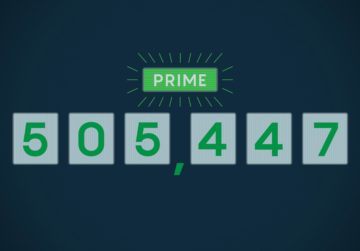Steve Nadis in Quanta:
 Take a look at the numbers 294,001, 505,447 and 584,141. Notice anything special about them? You may recognize that they’re all prime — evenly divisible only by themselves and 1 — but these particular primes are even more unusual.
Take a look at the numbers 294,001, 505,447 and 584,141. Notice anything special about them? You may recognize that they’re all prime — evenly divisible only by themselves and 1 — but these particular primes are even more unusual.
If you pick any single digit in any of those numbers and change it, the new number is composite, and hence no longer prime. Change the 1 in 294,001 to a 7, for instance, and the resulting number is divisible by 7; change it to a 9, and it’s divisible by 3.
Such numbers are called “digitally delicate primes,” and they’re a relatively recent mathematical invention. In 1978, the mathematician and prolific problem poser Murray Klamkin wondered if any numbers like this existed. His question got a quick response from one of the most prolific problem solvers of all time, Paul Erdős. He proved not only that they do exist, but also that there are an infinite number of them — a result that holds not just for base 10, but for any number system.
More here.
